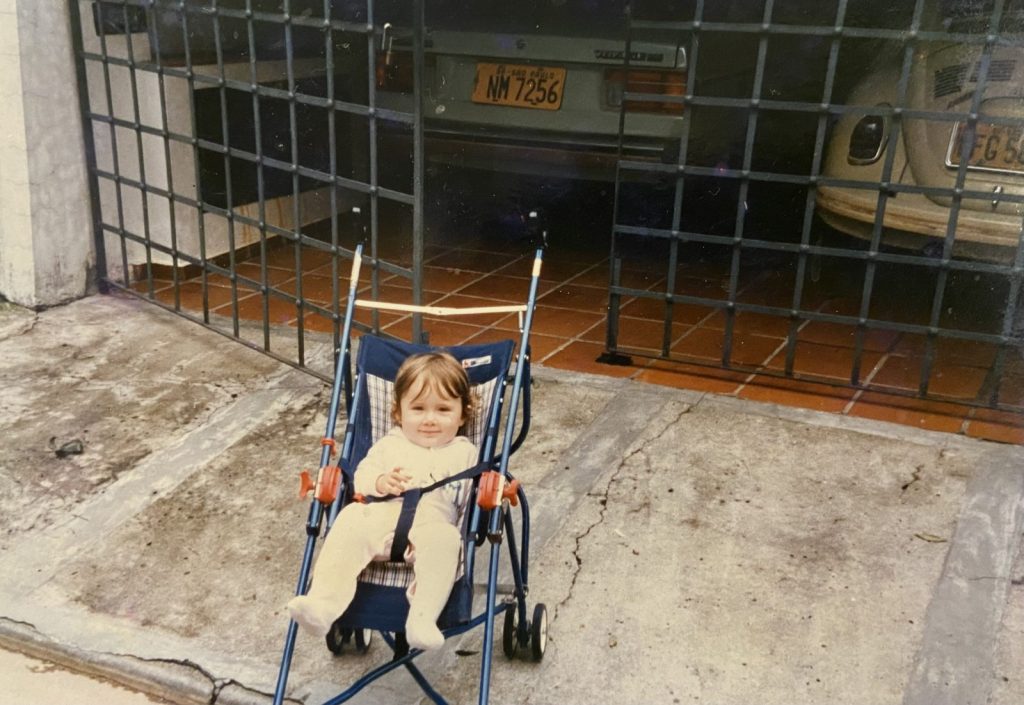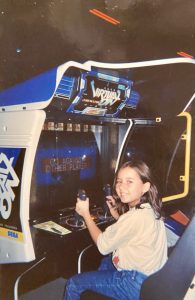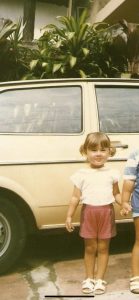
Processing During Challenging Times
I used to think that there were thoughts that needed to be filed under a mental cabinet called “the things I will never say or think about ever again”. I used to think that if I were to say some of my thoughts out loud, they would take their own form, create little legs, run away and cause chaos everywhere. Or worse, if I were to just think about them, they would never leave me alone. I guess you can say my childhood imagination has never left me! But as I progressed during my career as a reflective practitioner and into adulthood in general, I began to understand how little I actually knew about how I personally processed information.
This revelation didn’t just come overnight. In fact, I had two years and counting of a worldwide pandemic to reflect on it. I’ve come to understand that I was and still am in this deep, transformational process of understanding who I am, how I identify, my culture, my heritage, the privileges I hold, the trauma coursing through my veins, and what the process of liberation looks like for me. This revelation also reminded me that this work is a life-long project. And as an educator turned Mentor Teacher, this project wouldn’t be complete if I didn’t take on the perspective of what my inner child might think.
So, let’s start by talking about the big picture. The global background we currently find ourselves at the time of this posting. I wonder how many of the following things you and I share in common:
- Living?
Surviving?Thriving through a pandemic? - Living with a high level of uncertainty about the future? Check.
- Worrying about the health of myself and my loved ones?
- Having doubts about having my basic needs met?
- Being angry about society’s response and lack of love for BIPOC, for the trans community, for their desire, or lack of, in dismantling systems of injustice.
- Struggling to process the amount of information coming in at all times?
- Having a hard time identifying the wonderful things happening in the world? Check.
And the list can go on and on…
For many months after the pandemic started, I was feeling overwhelmed and exhausted. I’ve felt that I couldn’t hold information the way I used to. That I no longer could store ideas to use later on. The way I was processing things weren’t as fast as the amount of the information coming in. I felt like a Windows 98 computer operating in 2021. I didn’t have enough processing power. I simply couldn’t keep up. Each thought was fleeting. Each issue was met with a sense of urgency. The control I had before to think, sit, dissect, and process it, went out the door.
Reflection Question:
Younger children require more time to process than do older children. How are you honoring your or your children’s thoughts, psyche, body, emotions, and spirit by intentionally slowing down and prioritizing process or product?
—
“Waiting binds you to time and it’s deadly because time runs out. We fall into this trap of not having any time. And this is where the beauty of life occurs.”
– Daniel Foor
 One day, while I was scrolling down on my social media, I saw that quote by Daniel Foor and I said to myself, how great would it be if I could create time. I could do everything I want! But then I began to wonder, would I choose to spend this extra time sitting with the challenging things in my life? Or would I do something different? Would I choose to be like Wyatt, a child in my class, who despite me calling him to hurry along, would stop to identity and live with the beauty that is still happening around him? How would I respond? What would I do? All these questions I was asking and yet, no answers. “May be,” I said to myself. “Maybe I should try to look at this from a different angle. Maybe… I should look at this from the perspective of 5-year-old Paty?”
One day, while I was scrolling down on my social media, I saw that quote by Daniel Foor and I said to myself, how great would it be if I could create time. I could do everything I want! But then I began to wonder, would I choose to spend this extra time sitting with the challenging things in my life? Or would I do something different? Would I choose to be like Wyatt, a child in my class, who despite me calling him to hurry along, would stop to identity and live with the beauty that is still happening around him? How would I respond? What would I do? All these questions I was asking and yet, no answers. “May be,” I said to myself. “Maybe I should try to look at this from a different angle. Maybe… I should look at this from the perspective of 5-year-old Paty?”
What would a young me do, is not often a perspective we take on as an adult. Most of us as adults view children as incapable and incompetent. And when you have this view, you often treat children as such. You neglect them. Some may even choose to abuse them – physically, sexually, and emotionally. I would know because it happened to me. But young Paty, as I look at her now, was strong, capable, and intelligent. She found inner strength. She navigated confusing messages about her worth. She used various coping strategies to find the will to continue on. She still was able to find joy. And even though, in this moment, this situation was different, young Paty is still teaching adult Paty, healthy ways to thrive during this time.
Reflection Questions:
How are you allowing children and the adults in your life to define what “healthy” mental health and processing looks like to them? How are you allowing them to vent their emotions? What instruments of social supports are you providing them? What does active coping look like? How are you supporting the collectivist approach to care as oppose to individualistic approaches?
An important part of being a leader, of being a reflective educator means being vulnerable. Vulnerable enough to openly discuss topics of race, class, ability, oppression, power, and privilege. Vulnerable enough to engage in meaningful conversations with colleagues around multiple topics and learn about multiple perspectives in a space where you are challenged. Or in my case, vulnerable enough to give up my sense of control, and allow these childhood memories to come back to me.
And a couple of days later, a memory showed up!
I was sitting in my living room, listening to my dad’s music on the record player. My little play area was under the stairs, very close to the sounds of Garota De Ipanema by Tom Jobim & Vinicius de Moraes, playing in the background. My dad, who would play music on loop for what seemed like hours as he laid down on the couch used to say, “it helped me think better about things.” He would stay there for hours, and when he was done, he looked different. He looked happier. He looked like he found his inner peace. As I reflected deeper on these moments, I started to remember some of the other music he played that helped me escape to an alternate reality. It was the dramatic sounds of Eastern European indigenous/folk instrumental music. Music that was both eerie and whimsical that matched my imaginative play. Music that as it played, I would lie on the floor, mimicking my dad, and detach myself from reality. Slowly, those hours of detaching from reality grew into an opportunity to explore a world where anything was possible for me. And little seeds for what I wanted to be, my values, my morals, through fantastical worlds and fantasy stories started to grow inside of me. During these moments, I talked to myself in a friendly and kind way. I’ve felt safe and heard because the adults in my life didn’t. As a child I have worked through so many problems while using uninterrupted play time and music. And it dawned on me, just how little play I have in my life now.

Reflection Question:
We often present children ideas in a binary (either/or) framework. Males act like this. Paying attention looks like this. Democracy looks like that etc. When we talk about “reimagining” our work, how are we breaking cycles of binary-thinking for children and allowing children to explore the grey area of life? How do you transition children from one activity to another in ways that promotes autonomy in them? How do you lead circle time as a community rather than a top-down approach? Where, when, and how do you communicate with families? Is your voice the only one who is speaking? Does your structure and routine allow for flexibility and co-construction? Are you driven by time, tasks, and deadlines, or on experiences, processes, and wonder?
So, I played. I got down on the children’s level and slide across the floor. I got home and put my hands in dirt. I threw on headphones, lied on my back, and let my dreams take me into the wildest of situations, scenarios, and stories. I gave myself permission to put my mind at ease. And by the end of it, I was in tears. I haven’t cried like that in years. All the information that had been backed up, all the suppressed thoughts, all the difficult things I needed space and grace to work through, became so much easier to solve. I saw my father’s smile. That same smile I had when I was a child when he got up from that couch after he found clarity and peace. My ‘old computer self’ had gotten a small upgrade. And I have continued that process every time I feel like I’m about to crash, to ensure I can run a bit smoother.
But the reality is, not everyone has the privilege or luxury of time to tune out, to tune into themselves completely, and to find opportunities to play.
There are members of our community who can’t because they are a single guardian household. Can’t because some have neurological conditions that affects their ability to process. Can’t because some built environments don’t consider those with various physical abilities. Can’t because society, in some way, has failed to care about them. This is what I often refer to as community care. How are we, regardless of all our different beautiful identities, working towards the humanity of others. How are we rallying around, protecting, uplifting, celebrating, and supporting those we break bread with, or we share space with?
There are days when I think “I don’t have time for this music!”. Then I think of my child self thinking how silly that sounds! She would probably tell me there’s always time, even when the world is burning around me. You can always find a small place to be and plant the seeds you need to thrive.
To my friends who are reading this, sometimes space is what we need. Space to have feelings. Space to work on things. Space to process. Brave spaces to challenge others and to be challenged yourself. Whether you have 5 minutes or 3 hours, my advice to you is to honor yours and your children’s own process and time. Work to better understand how you process information during stressful times and wonder how you can work to refine your ability to process it. To reflect back on the gifts your younger selves keep on giving you to help you mentally, emotionally, and spiritually. To reflect upon your privileges, whatever that may be, and use them to facilitate the care of your community.
Reflection Question:
How did you process information as a child? How about now?
What are the gifts your younger self keeps on giving to you?
How do you honor your culture and how they view the concept of time, processing, love, and community in your everyday life?
What privileges do you take it for granted? If you are a part of a community, how do you show up and support each other, especially BIPOC members?